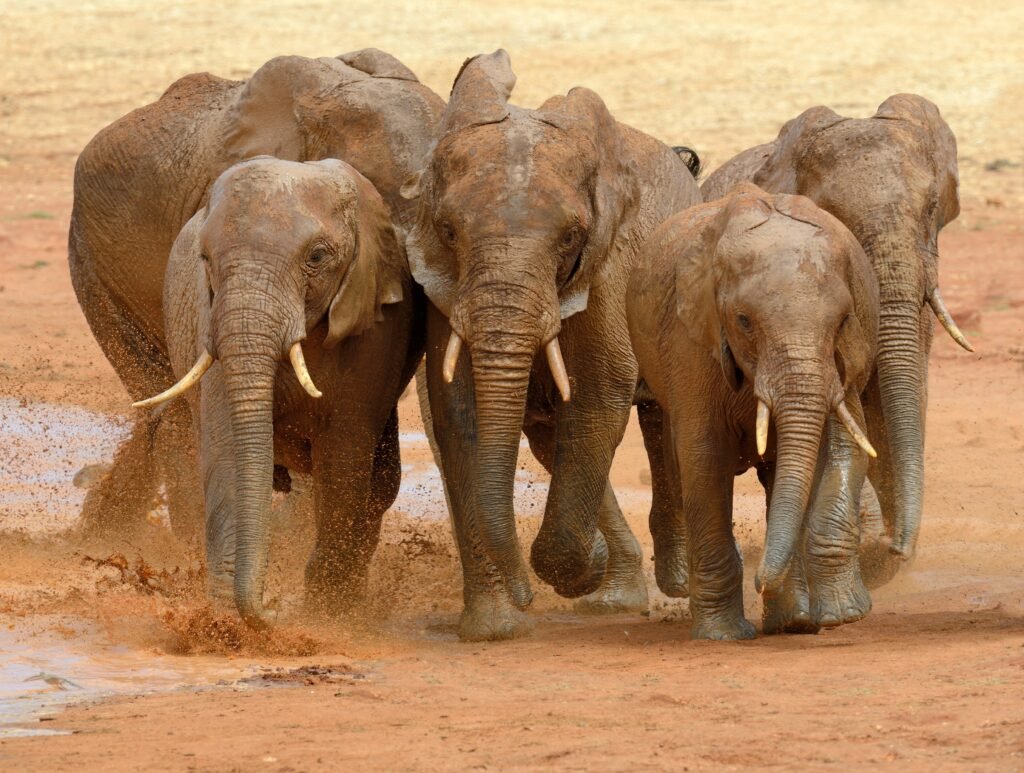Elephants, the gentle giants of the animal kingdom, hold a marvel within their genetic makeup that has intrigued scientists for years. Despite their massive size and long lifespans, elephants have an impressively low rate of cancer compared to humans. This intriguing phenomenon has piqued the interest of researchers, who are eager to uncover the secrets hidden within elephant DNA. Could understanding these secrets lead to revolutionary advancements in human health and longevity? This article dives deep into the world of elephant genetics, exploring the potential implications for human health.
Understanding the Paradox of Size and Cancer
The sheer size of an elephant presents an interesting paradox when it comes to cancer. Typically, larger animals with more cells should theoretically have a higher risk of developing cancerous mutations. However, elephants defy this expectation. This anomaly is known as Peto’s Paradox, named after epidemiologist Richard Peto. He first noted that cancer incidence does not scale with body size across species. Elephants, with their 100-fold increase in cell count compared to humans, should logically have a higher cancer rate, yet they don’t. This paradox serves as the starting point for exploring their unique genetic defense against cancer.
The Role of the TP53 Gene

One of the key players in the elephant’s cancer resistance is the TP53 gene, often referred to as the “guardian of the genome.” While humans possess only two copies of this gene, elephants boast an impressive 20 copies. The TP53 gene is crucial for regulating cell division and preventing mutations. In elephants, the abundance of these genes enhances their ability to detect and repair DNA damage, effectively preventing the cells from becoming cancerous. This genetic fortification provides elephants with an extraordinary defense mechanism, one that could potentially inform new cancer therapies for humans.
Apoptosis: Elephants’ Secret Weapon
Another fascinating aspect of elephant DNA is their enhanced capacity for apoptosis, or programmed cell death. When cells are damaged beyond repair, apoptosis serves as a biological safety measure, eliminating the faulty cells before they can turn cancerous. Elephants have evolved to trigger apoptosis more readily, which is thought to be due to their multiple copies of the TP53 gene. This self-destruct mechanism is crucial in maintaining healthy cell populations and preventing cancer development. Understanding and replicating this process in humans could lead to breakthroughs in cancer prevention.
Lessons from the Elephant’s Long Lifespan
Elephants live for approximately 60 to 70 years in the wild, a lifespan that rivals that of humans. This longevity, coupled with their low cancer rates, suggests that their DNA holds vital clues to extending human life. By studying how elephants manage cellular aging and maintain genomic integrity over such long periods, scientists hope to unlock strategies for enhancing human healthspan. The elephant’s ability to thrive despite their size and lifespan offers a blueprint for understanding aging and disease prevention in humans.
Elephants and the Future of Cancer Research
The study of elephant DNA is opening new frontiers in cancer research. By identifying the mechanisms that allow elephants to resist cancer, researchers are developing novel approaches to cancer treatment and prevention. The insights gained from elephant genetics could lead to the development of drugs that mimic the effects of multiple TP53 gene copies or enhance apoptosis in human cells. This research holds the promise of transforming how we understand and combat cancer, potentially reducing its prevalence and improving treatment outcomes.
Environmental Adaptations and Genetic Evolution
Elephants have evolved over millions of years, adapting to a variety of environments and challenges. Their genetic makeup reflects these adaptations, providing them with robust mechanisms to cope with environmental stresses, including disease. The evolutionary pressures faced by elephants have likely shaped their unique cancer resistance. By studying these evolutionary adaptations, scientists can gain insights into how genetic traits that confer disease resistance develop and how they might be applied to human medicine.
Implications for Human Longevity

The potential applications of elephant DNA research extend beyond cancer prevention. By understanding the genetic factors that contribute to their longevity and disease resistance, scientists aim to apply these findings to human aging. This research could lead to the development of therapies that enhance cellular repair mechanisms, improve immune function, and ultimately extend human lifespan. The insights gained from elephants offer a tantalizing glimpse into a future where humans could live longer, healthier lives, free from the burden of age-related diseases.
The Ethical Considerations of Genetic Research
As scientists delve deeper into the secrets of elephant DNA, ethical considerations come to the forefront. The prospect of manipulating human genetics based on findings from elephant research raises questions about the limits of scientific intervention. While the potential benefits are significant, researchers must navigate the ethical implications of genetic modification and the potential risks involved. Balancing scientific exploration with ethical responsibility will be crucial as we move forward in this promising field of research.
Elephant DNA: A Blueprint for a Healthier Future
The study of elephant DNA and its implications for human health is a testament to the interconnectedness of life on Earth. By learning from these majestic creatures, we can uncover pathways to improved health and longevity. Elephants, with their remarkable cancer resistance and longevity, provide a natural blueprint for developing innovative strategies to combat disease and enhance human life. As research continues, the secrets held within elephant DNA may unlock a future where humans can live healthier, longer lives, inspired by the wisdom of the animal kingdom.




